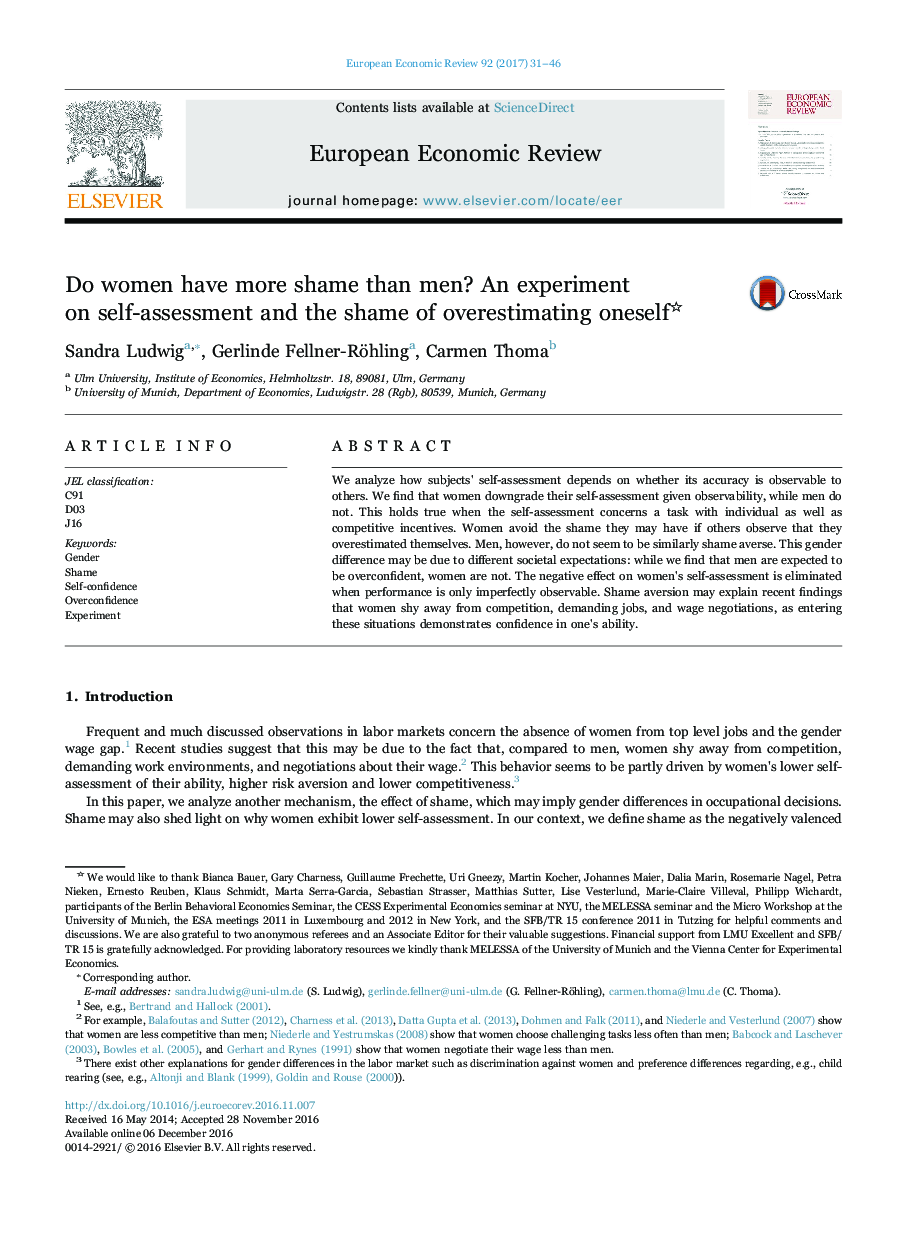| Article ID | Journal | Published Year | Pages | File Type |
|---|---|---|---|---|
| 5066305 | European Economic Review | 2017 | 16 Pages |
We analyze how subjects' self-assessment depends on whether its accuracy is observable to others. We find that women downgrade their self-assessment given observability, while men do not. This holds true when the self-assessment concerns a task with individual as well as competitive incentives. Women avoid the shame they may have if others observe that they overestimated themselves. Men, however, do not seem to be similarly shame averse. This gender difference may be due to different societal expectations: while we find that men are expected to be overconfident, women are not. The negative effect on women's self-assessment is eliminated when performance is only imperfectly observable. Shame aversion may explain recent findings that women shy away from competition, demanding jobs, and wage negotiations, as entering these situations demonstrates confidence in one's ability.
